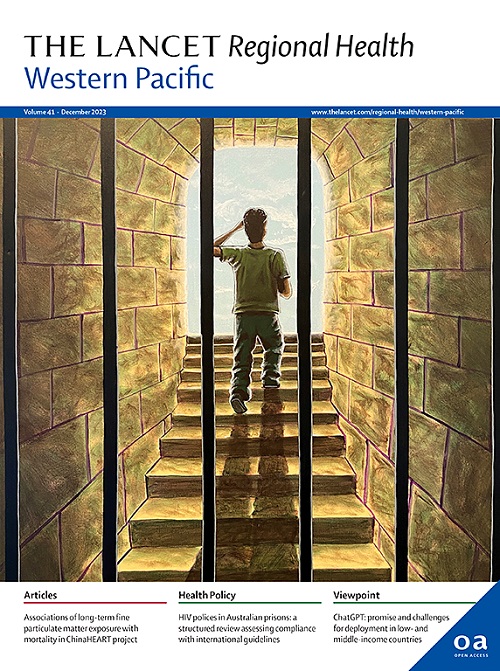Redefining the gap in Aboriginal health: from deficit to cultural connection
IF 7.6
1区 医学
Q1 HEALTH CARE SCIENCES & SERVICES
引用次数: 0
Abstract
This article is written from the perspectives of a Yuwaalaraay/Gamilaraay cultural knowledge holder and a Yuin Djirringanj cultural knowledge holder from New South Wales, Australia. It explores the concept of cultural health, and the need to shift towards centring culture in every aspect of Aboriginal health and wellbeing. The three elements of cultural health are discussed as Country which includes lands, waters, skies, and all entities within; people, and their freedom, and ability to express and maintain continuing connections to culture and Country; and culture which encompasses identity, language, and knowledges, and is maintained and strengthened through active connection to Country, and cultural practices. Cultural health is out of balance due to invasion and ongoing colonisation which translates to the differences in health and social outcomes we see represented in ‘the gap’, fails to acknowledge or centre our cultural health, and remains a challenge in making significant progress in health and social outcomes. It is reflected in many of the unmet or receding targets. To improve Aboriginal health and wellbeing, data exploring the different aspects of ‘the gap’ in cultural health from a strength-based approach, as opposed to the gap in deficit and disease is required.
重新定义土著居民健康差距:从赤字到文化联系
本文以来自澳大利亚新南威尔士州的Yuwaalaraay/Gamilaraay文化知识持有者和Yuin Djirringanj文化知识持有者的角度撰写。它探讨了文化健康的概念,以及在土著居民健康和福利的各个方面转向以文化为中心的必要性。文化健康的三个要素被讨论为国家,包括土地、水、天空和其内部的所有实体;人民,他们的自由,以及表达和保持与文化和国家的持续联系的能力;文化包括身份、语言和知识,并通过与国家和文化习俗的积极联系来维持和加强。由于入侵和持续的殖民化,文化健康失去了平衡,这导致了我们在“差距”中看到的健康和社会结果的差异,未能承认或关注我们的文化健康,并且仍然是在健康和社会结果方面取得重大进展的挑战。这反映在许多未实现或正在后退的目标上。为了改善土著居民的健康和福祉,需要从以实力为基础的方法,而不是从赤字和疾病方面的差距,来探索文化健康“差距”的不同方面的数据。
本文章由计算机程序翻译,如有差异,请以英文原文为准。
求助全文
约1分钟内获得全文
求助全文
来源期刊

The Lancet Regional Health: Western Pacific
Medicine-Pediatrics, Perinatology and Child Health
CiteScore
8.80
自引率
2.80%
发文量
305
审稿时长
11 weeks
期刊介绍:
The Lancet Regional Health – Western Pacific, a gold open access journal, is an integral part of The Lancet's global initiative advocating for healthcare quality and access worldwide. It aims to advance clinical practice and health policy in the Western Pacific region, contributing to enhanced health outcomes. The journal publishes high-quality original research shedding light on clinical practice and health policy in the region. It also includes reviews, commentaries, and opinion pieces covering diverse regional health topics, such as infectious diseases, non-communicable diseases, child and adolescent health, maternal and reproductive health, aging health, mental health, the health workforce and systems, and health policy.
 求助内容:
求助内容: 应助结果提醒方式:
应助结果提醒方式:


